Realizing a gap between the Academia and Industry, the School of Engineering hosted a workshop on 16th, April 2025 aimed at strengthening the collaboration for Skills Development and Innovation to ensure that the engineering graduates have the relevant skills needed for the labor market and can contribute effectively to national development.
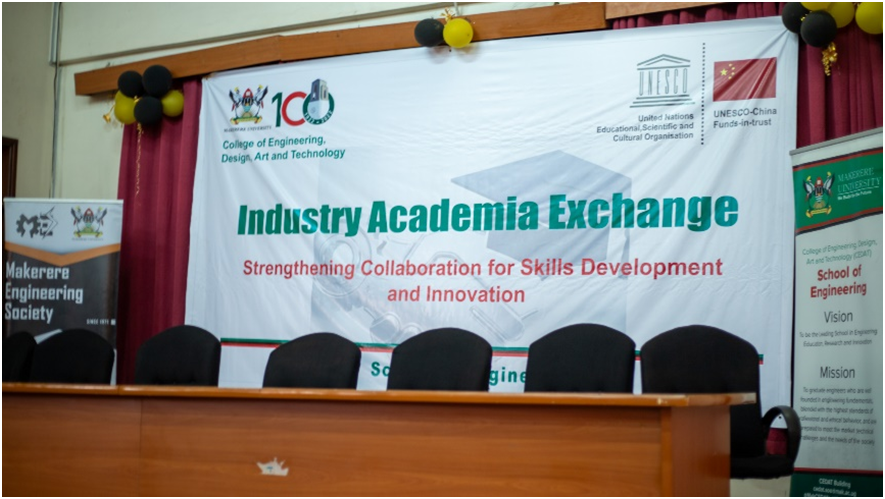
The workshop was officially opened by the Dean, School of Engineering Dr. Dorothy Okello who emphasized improving the relationship between the academia and industry by having continuous engagement and regularly inviting industry representatives to contribute to the curriculum. She proposed this engagement to be happening every two to three years, with a focus on regular discussions to enhance opportunities and align more closely with market needs aiming on collaboratively increasing productivity and improve the ultimate development for the involved parties.

Mr. Patrick Mbonye, Group CEO at Q-Sourcing Servtec Uganda asked the lecturers to give room for interaction between the students and the experts from industry. “As you give assessment to the students ask the industry experts to come and look at those assessments too”, Mr. Mbonye said. He also noted that Innovation cannot be taught but one can learn to be creative.
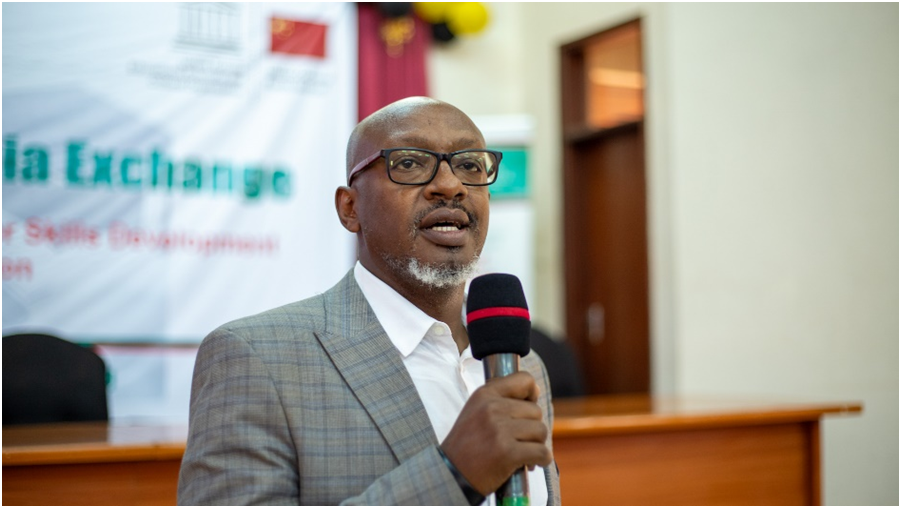
The keynote speaker, Eng. Israel Kamoga who is also the Local Content Capacity Building Lead, East African Crude Oil Pipeline (EACOP) asked the student trainers to embrace research and keep updated with the new technologies coming up, through engaging with the industry experts since the world is evolving very fast. “You need to know the latest technology that is happening so that you can add it into the curriculum. This will help us to bridge the gap between the academia and industry”, Eng. Kamoga noted. He also said that inorder to build national content we need to employ the local people and companies in terms of labor, and goods and services
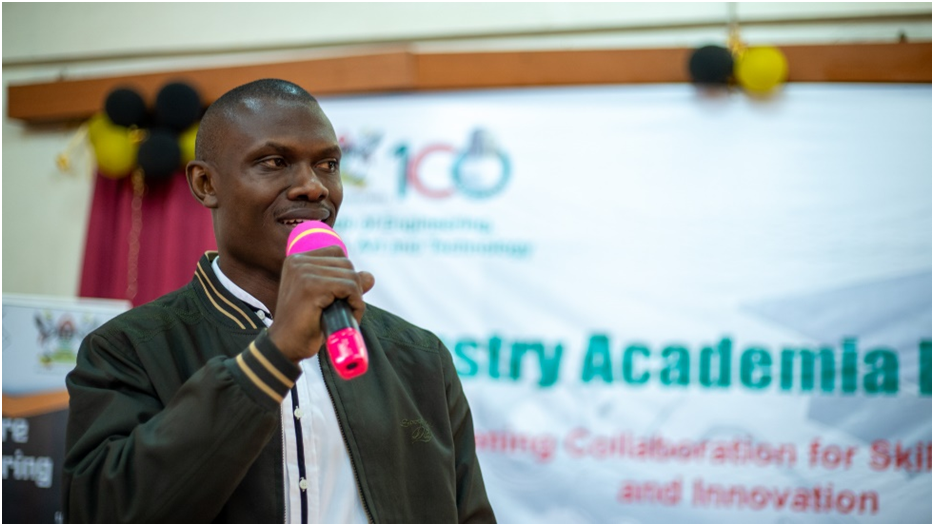
According to Dr. Francis Mujjuni from the Department of Mechanical Engineering Makerere University, the average Ugandan engineer is not registered. This explains a lot of work that has to be done because it speaks to professionalism and credibility. He also noted that the opportunities available for the engineers are many and the demand is high.However, the problem is, Are the engineers available to meet the demand?
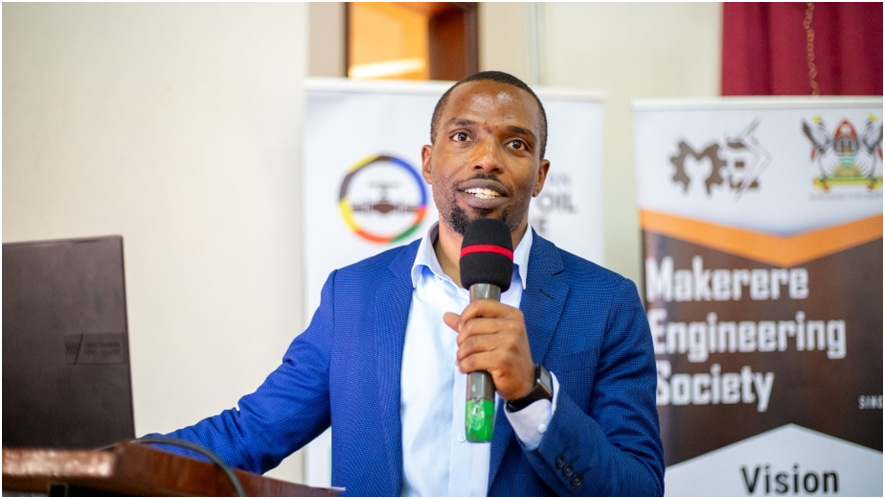
During the workshop, there was a Panel discussion under the theme, “From Collaboration to Co-creation: Strengthening Industry-Academia Partnerships for Skills, Innovation, and Employment”. The panel that brought together different experts from industry, academia and government was moderated by Dr. Grace Kamulegeya and the panelists included, Eng. Timothy Mubbala the Manager Compliance, National Building Review Board, Dr. Catherine Wandera, a Team Lead at Science, Technology and Innovation Secretariat office of the Prime Minister Dr. Rebecca I. Kiconco, a lecturer at Makerere University Business School, and Natasha KassamiMusinguzi, the National Content and Capacity Building Lead at EACOP. They discussed impactful insights towards bridging the gap between the academia and industry. According to Dr. Catherine Wandera, “There has to be a purpose for the skills we are evolving and we have to articulate those skills first to have real clarity on where they are applicable”. She went ahead to pose a question to the audience that “What type of industry do we have in Uganda, Is it a consumption industry or a development industry?”. Basing on the question posed, Dr. Wandera stressed that “Involvement of industry beyond curriculum development is very important. Then we will be able to know if what we build in curriculum is making sense”
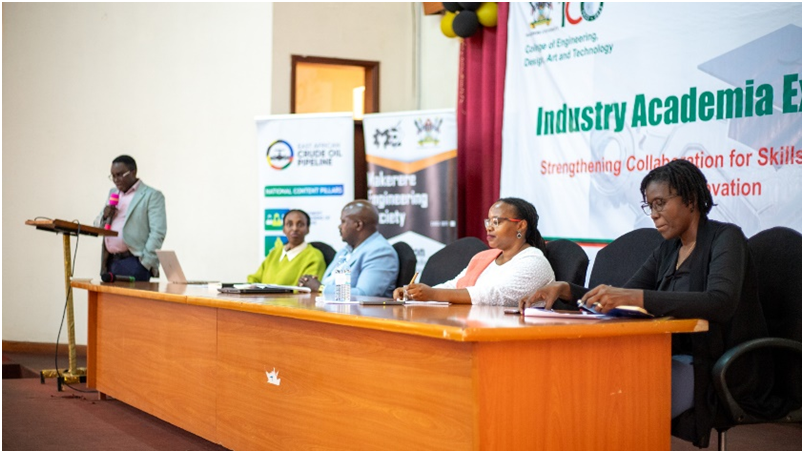
Dr. Rebecca I. Kiconco noted that “Collaboration and co-creation is something we have to invest in now or else our future is written already” Being that the industry is research driven, we cannot stay away from innovation and “Let’s not deceive ourselves that we know all the technology that exists. That’s why we have to collaborate as industry and academia in order to keep learning more”, said Dr. Catherine Wandera. In addition, Eng. Timothy Mubbala stressed that there weresome subjects that are important though have been neglected. “I feel there are subjects we are not giving attention yet they are very relevant like Customer relations” Eng. Mubbala noted. He also went ahead to emphasize that competence-based curriculum helps one to identify their areas of strength and concentrate on them. According to Natasha KassamiMusinguzi, Exposure of the students to the site to see what actually happens there and how everything is done helps to improve on their hands-on skills and competence. The workshop aimed at bridging the gap between the industry and academia and come up with how best to collaborate in research, innovation and employability besides strengthening structures for sustained engagement. The workshop was later on closed by the Dean, School of Engineering, Dr. Dorothy Okello who recognized the presence of all the public universities available and commended them for honoring the invite besides the industry experts and government official present. She also promised to continue having more engagements of the kind and urged participants to always respond positively whenever they are called upon at any point.
Article by
Gloria Kabazazi, Communication Student
